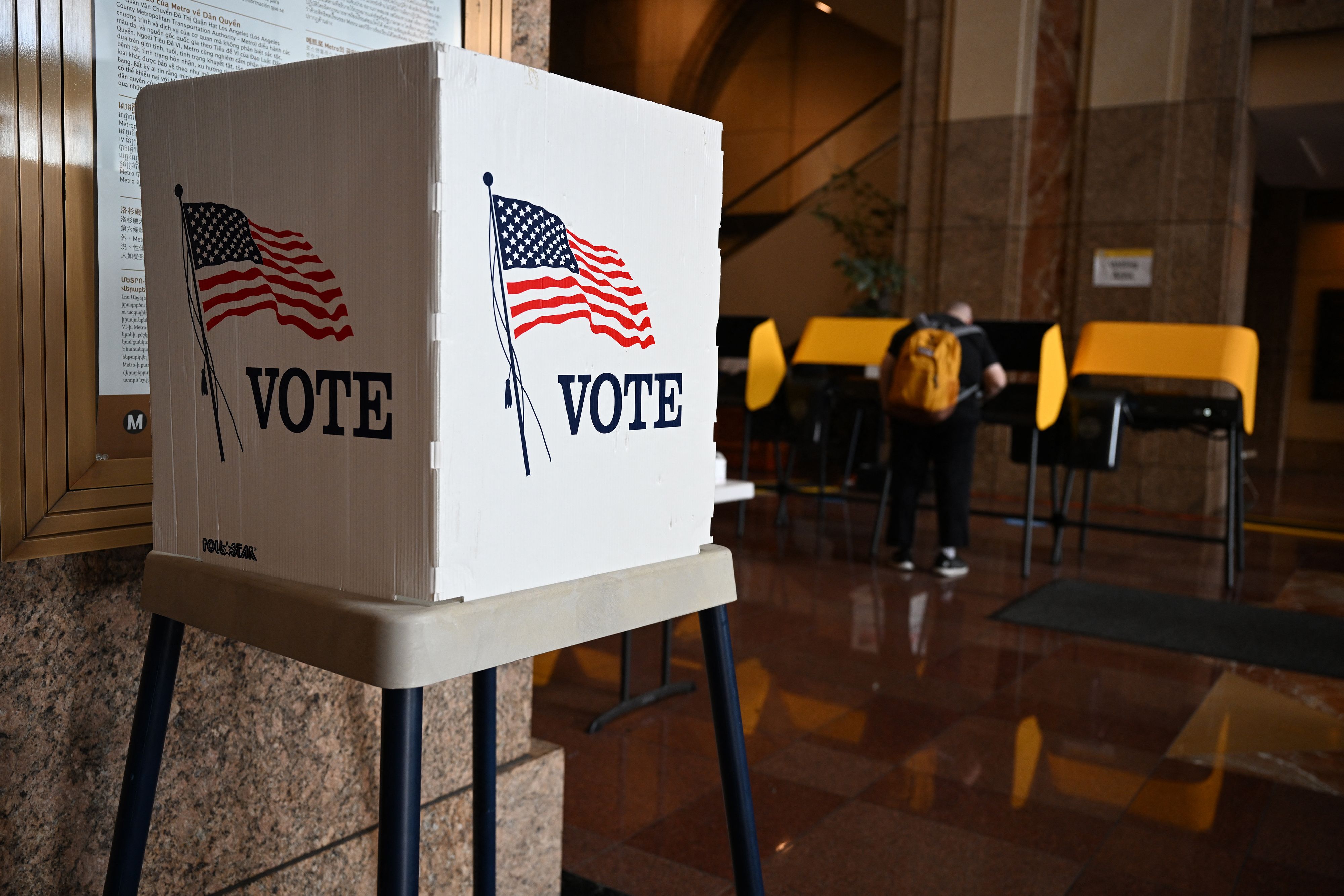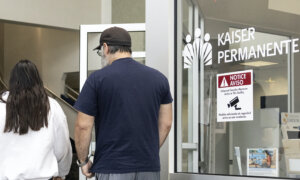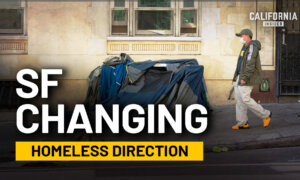With California’s primary election scheduled for March 5, voters have less than a month to decide if they will support measures slated for the ballot.
The lone initiative impacting the entire state, Proposition 1, would borrow $6.4 billion to develop 10,000 mental health treatment beds.
Prioritized by Gov. Gavin Newsom, the proposal is the product of two bills—one each from the Assembly and the Senate—establishing the 2024 ballot initiative and approved by the governor last year.
“These reforms, and this new investment in behavioral health housing, will help California make good on promises made decades ago,” Mr. Newsom said in an October 2023 press release announcing the measure.
He argued the proposal is needed to address mental health issues—including alcoholism, drug addiction, and homelessness—affecting the state.
“We see the signs of our broken system every day—too many Californians suffering from mental health needs or substance use disorders and unable to get support or care they need,” Mr. Newsom said. “This will prioritize getting people off the streets, out of tents, and into treatment.”
Supporters said the measure is based on “compassion and common sense” and chooses treatments over tents to improve the quality of life for Californians—especially for the approximately one in seven adults who experience mental illness in their lifetime, according to the Senate’s Mental Health Almanac, published in 2022.
“By voting yes on Proposition 1, we can finally establish a modernized mental health system that will serve the needs of all our residents, get our most vulnerable off the streets and offer every Californian a genuine shot at a brighter future,” California Professional Firefighters and the Veteran Mentor Project, among other groups, argued in support in the voter information guide. “This is a crisis only Californians can solve.”
Critics argue the measure would prove detrimental because it cuts existing mental health services by diverting one-third of the money from the Mental Health Services Act—passed by voters in 2004. The act applies a 1 percent income tax on those earning at least $1 million per year to fund mental health programs.
“The results will be devastating at the local level,” opponents including Mental Health America of California and the California Association of Mental Health Peer-Run Organizations stated in the voter guide. “Prop 1 doesn’t fix a broken system; it breaks something that’s working.”
Some of those opposed to the measure suggest it would cut programs, eliminate health care jobs, and reduce services available.
Others point to costs that could exceed $10 billion for taxpayers because of interest on the bond amount that could take decades to repay.
“This isn’t free money. It’s credit card borrowing from Wall Street,” Republican state lawmakers Sen. Brian Jones and Assembly member Diane Dixon argued in the voter guide. “And with interest rates today, it’s a very bad time to be taking on new bond debt, adding at least 60 percent in interest costs.”

Voters drop off ballots at the Orange County Registrar of Voters offices in Santa Ana, Calif., on Nov. 8, 2022. (John Fredricks/The Epoch Times)
Local Measures
With only one ballot measure statewide, some voters have much more to take notice of regionally—with dozens of potential tax increases to be decided along with several measures on education and housing.
Funding for school districts is the basis for 39 measures spread across the state, with local communities set to determine bond measures that would raise millions of dollars for public schools. Another 12 proposals would raise parcel taxes to raise money for school programs.
Ten proposals would increase parcel taxes for health care projects and other agendas, including one in the City of Adelanto in San Bernardino County that would raise taxes to $600 from $50 per acre on vacant land, to generate approximately $6.2 million in revenue annually.
Sales tax measures are under consideration by 17 municipalities, one of which could reduce tax rates while the others would increase them. Proposals in Benicia, an agricultural hub located in Northern California, aim to increase sales and hotel taxes, with the latter potentially jumping to 13 percent from 9 percent if voters approve.
A proposal in Huntington Park in Los Angeles County would set term limits for city council members at no more than four consecutive four-year terms. Another in that city would test parking permits instead of parking meters for some on-street parking in the city.
Also in Los Angeles County, Long Beach residents will decide if qualifying hotel workers should see their minimum wage increased from $17.55 to $23 per hour starting July 2024, with a subsequent bump to $29.50 hourly by July 2028.
In Orange County, Huntington Beach voters will settle an election rule debate over whether voters should have to show identification at polling locations. Additionally, they will have a choice about the flags allowed to be flown on government property, with a measure prohibiting all but a strict list of authorized flags without a unanimous vote from the city council. Such is designed to limit the flying of transgender and other ideologically based flags, according to supporters.
Voters in Sacramento will consider Measure C—increasing business taxes from a cap of $5,000 a year to $125,000 annually by 2028, with an exception for cannabis businesses. Licensed professionals would see annual tax increases, as would all nonexempt businesses—such as nonprofits and companies owned by disabled veterans.

A person drops a ballot in a ballot drop box in Los Angeles on Aug. 31, 2021. (Chris Delmas/AFP via Getty Images)
A controversial measure in Alameda County, in the Bay Area, will ask voters to amend the county charter to change the rules regulating recall elections. Critics argue the move is an attempt to confuse voters, with recall campaigns underway targeting Pamela Price, the county’s district attorney, and Sheng Thao, mayor of Oakland.
Across the bay, San Francisco voters have a full slate of proposals to consider.
Proposition A would create a $300 million housing bond to acquire and develop nearly 50,000 moderate-income housing units by 2031. A property tax increase through 2047 would fund the bond repayment.
With crime impacting the city, two propositions seek to find solutions—Proposition B would set minimum police staffing levels and Proposition E would permit vehicle chases and the use of drones and surveillance cameras to deter criminals while also allowing officers to spend more time on the street.
Other proposals include one that would limit the gifts city employees could accept; another that would offer exemptions for property transfer taxes for repurposed commercial office buildings; and an education measure that seeks to reinstate algebra classes for middle school students.
Mail-in ballots were sent out by the state on Feb. 5 and will be arriving soon in voters’ mailboxes. Every registered voter will receive a vote-by-mail ballot, and polling locations throughout the state are available until March 5 for in-person voting and to drop off completed ballots.














